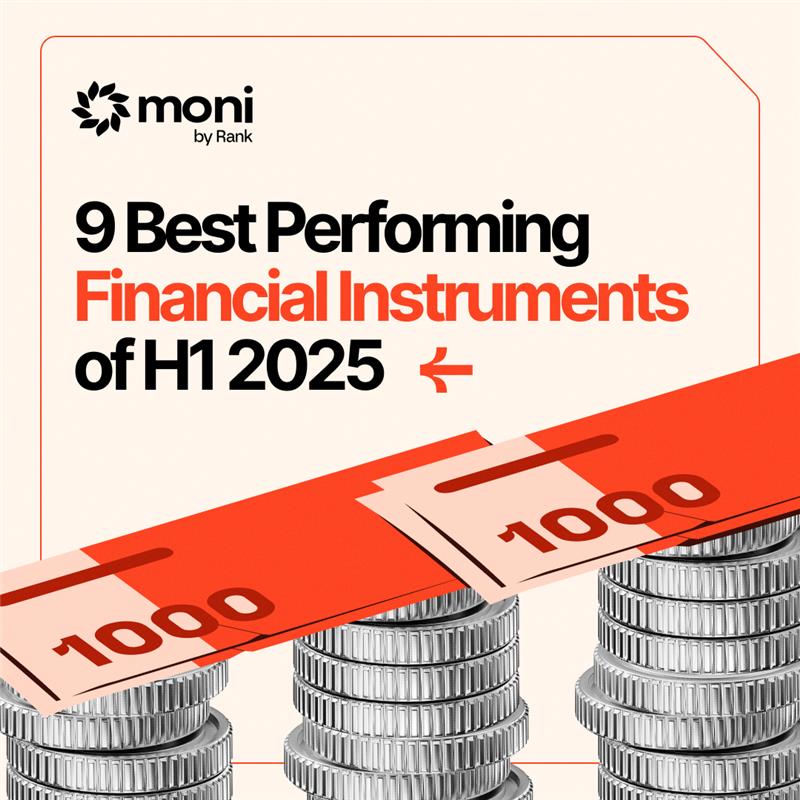In your twenties, money management can seem overwhelming. It’s a decade full of firsts — first job, first bank account, first money commitments and perhaps even first real debt.
With all these changes, it’s easy to overlook the importance of solid financial planning. To help you navigate this critical period, we spoke with Ife of Money Talks with Ife, a personal finance expert and content creator who shifted her career to focus entirely on helping others manage money wisely.
Here, she shares her journey, financial principles, and actionable advice on setting yourself up for financial success.
Q: Can you share a bit about your background and how you got into personal finance?
Ife: Sure! I studied biological sciences, and while I was in the university, I started a small baking business. It was going well, but I noticed an unsettling pattern. When there was money, I was “balling,” as they say, but when there wasn’t, I was dead broke. I’d seen this cycle play out with my parents, and I didn’t want it to continue in my life. That’s when I knew I needed to learn about money management.
So, I started reading books, taking baby steps, and applying what I learned. Eventually, I found financial consulting and realized it gave me more fulfillment than my other businesses. Now, I help others avoid the financial pitfalls I encountered, but I still run multiple businesses on the side.
Q: For someone in their twenties, what would you say is the first smart money move to make?
Ife: Absolutely, the first step is to have a source of income. And this doesn’t have to be a traditional job; it can be a side hustle, a sellable skill, or a small business. The point is to have something reliable that brings in money. Having a steady income is the foundation because it not only provides financial stability but also teaches you to appreciate and manage your money.
Read: 10 easy ways to make money online in Nigeria
Q: What’s next after establishing an income?
Ife: Once you have income, the next step is investing in knowledge. The truth is, the knowledge you don’t have can’t benefit you. Learning about money management, budgeting, investment options, and financial planning is crucial. Start small — read books, listen to podcasts, or take online courses. Even knowing the basics will help you avoid common financial mistakes and make informed decisions as you earn and save.
Q: With inflation being a constant concern, what’s your advice for handling it?
Ife: Inflation is real, and it can feel like it’s chipping away at your hard-earned money. I recommend two things: cut down on unnecessary expenses or find ways to earn extra income. For example, evaluate your spending and see where you can trim the fat. Maybe it’s eating out less or canceling subscriptions you rarely use. At the same time, explore ways to increase your income, like freelancing or a part-time gig. Balancing these two will help you better handle inflation without feeling overwhelmed.
Q: You’ve mentioned saving is essential. How should young people approach it?
Ife: I can’t stress enough how important it is to save consistently. “Save, save, no matter how little,” is my mantra. Even if you’re putting away a small amount, doing it regularly builds a habit. I suggest automating your savings if you can; set up an automatic transfer to a savings account so you don’t even think about it. This way, you’re steadily building a financial cushion.
Q: Beyond saving, where should we put our money?
Ife: Great question! Don’t leave your money in a bank account. I repeat, don’t leave your money in a bank account. While saving is important, leaving your money in a regular bank account where it doesn’t grow is a missed opportunity. I recommend looking into options like fixed deposit accounts that offer higher interest.
For example, Moni offers a fixed deposit with up to 21% interest, which is a fantastic way to grow your savings without much risk. Start growing your money with Moni.
You can also consider high-yield savings accounts or certificates of deposit (CDs) that yield more than standard accounts.
Q: Are there investment options you think are particularly suitable for beginners?
Ife: Yes. When you’re just starting, go for low-risk investments that allow you to dip your toes in without too much risk. Treasury bills, for instance, are government-backed and relatively safe. Money market funds are another option; they’re a bit more flexible and offer returns that are generally higher than typical savings accounts. And if you’re interested in the stock market, start small and invest in stable companies. The idea is to create a diversified investment portfolio that balances growth with safety.
Q: It can be daunting to start investing in your twenties. Do you have any tips for getting over that initial hesitation?
Ife: I get it — investing seems intimidating at first. My advice is to start where you are. Don’t wait until you feel “ready.” Just begin with what you can manage, even if it’s a tiny amount. Starting early means you can benefit from compound interest, which lets your money grow faster over time. The key is consistency. Even small, regular contributions to your investments will pay off in the long run.
Q: What are some key habits you think young people should develop for long-term financial health?
Ife: Developing good money habits early is essential because habits compound over time. I always recommend setting a budget each month, tracking your expenses, and reviewing your finances regularly. Make it a habit to live within your means and avoid unnecessary debt. Another helpful habit is setting clear financial goals; whether it’s saving for a vacation or an emergency fund, goals give you a clear direction and keep you motivated. These habits may seem simple, but they’re incredibly powerful.
Read: 6 Easy ways to track your monthly expenses
Q: Finally, what’s the one piece of advice you’d like every twenty-something to remember?
Ife: If there’s one thing I want everyone to take away, it’s the importance of starting early and being consistent. Nothing beats starting early when it comes to money matters. Even if it feels like a slow process, every small step counts, and over time, those small efforts add up. Money has this incredible way of growing when you give it time and a good plan.





